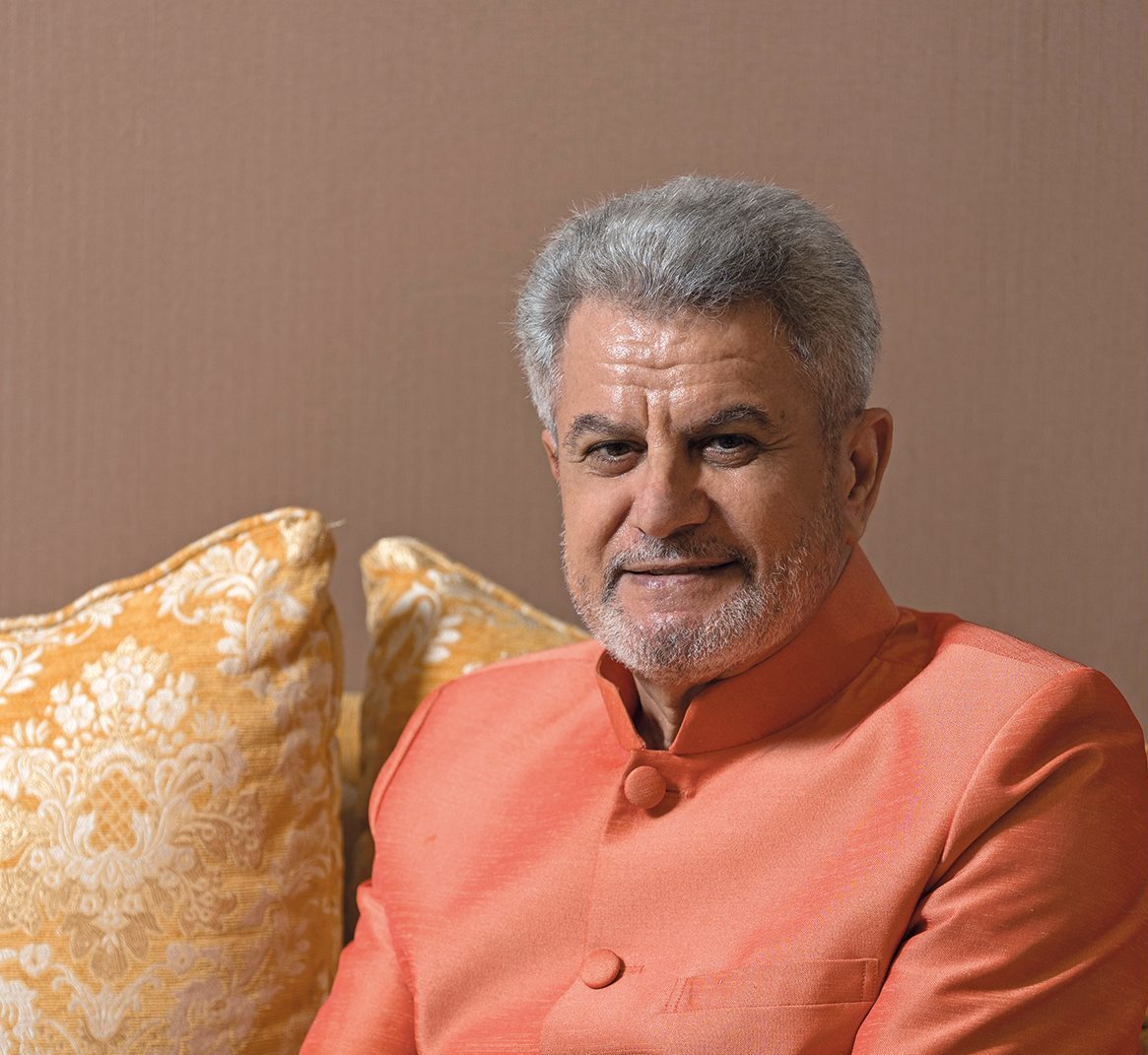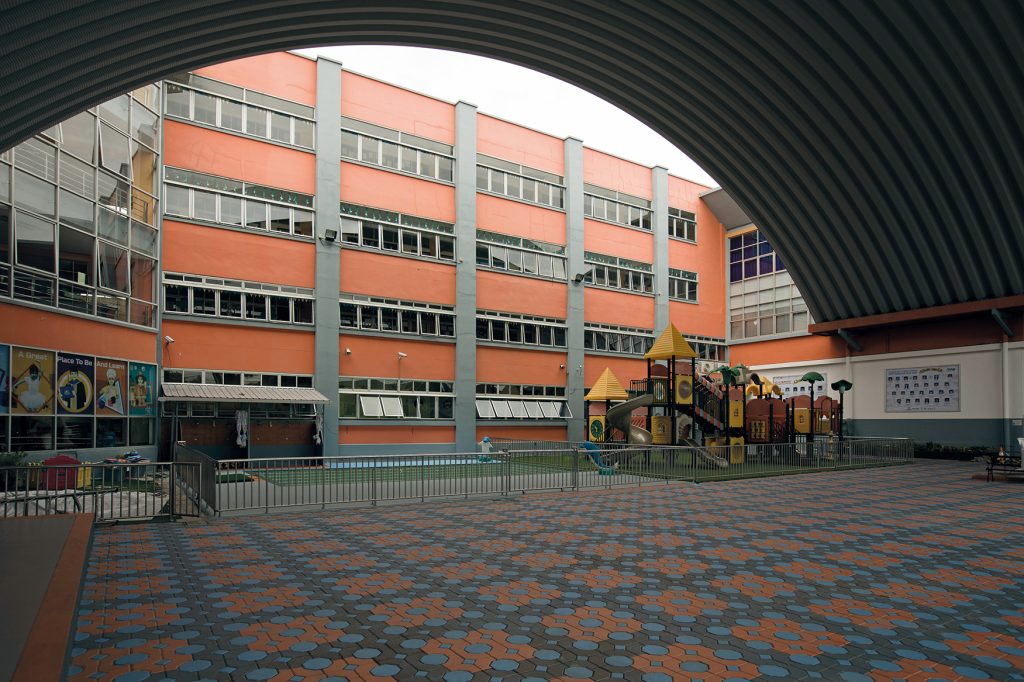How his experiences in India helped shape his approach to education.
Dr. Husni Hamad, the founder and principal of the Pan-Asia International School (PAIS), is clearly a man who is unafraid to wax eloquent about his passions – from his love for Thailand, to education’s role in changing the world, to his transformative experiences in India. Born in Jordan in 1957, he went to Uttar Pradesh, India, for a BSc in Civil Engineering at Aligarh Muslim University (AMU), which he credits with discovering the importance of both education, and open-mindedness. “I value India and Indian culture very much because I feel the added value in myself that I got there,” Dr. Husni tells me, “not just from my bachelor’s degree, but from all my experiences, with friends from all religions – Sikhs, Hindus, Muslims, Christians, you name it. I learned to be open-hearted and open-minded and to love people from all cultures.”
This is one of the cornerstones of the Pan-Asia International School, together with giving back to the community. Established by the Social Welfare Society (SWS), a non-profit organisation that Dr. Husni also founded, PAIS has recently offered special discounts for those most affected by the COVID-19 pandemic. “We did not establish the school for the sake of profit,” Dr. Husni reiterates. “The education of our children is very important, and we don’t want any disruption to that.”
He spoke to Masala about his journey from Jordan, to India, to founding an international school in Thailand.
What did you do prior to founding the Pan- Asia International School, and what led you to Thailand?
After my Bachelor’s degree in India, I left for Algeria in 1984 to work as an engineer, before moving to Thailand in 1987. A friend of mine who went to university with me in India met his life partner there, and after they got married, they decided to settle in Thailand. We’d been in contact this whole time, and he asked me to come to Thailand to start an export business with him, which I did. Eventually, I got married to his wife’s sister.
I worked in that export business in Bangkok for six years, before moving to the South of Thailand because our company had invested in aquaculture; in shrimp farming. In the meantime, we’d established the SWS foundation in 1999, and the idea of using it to found a school was always in our minds. In 2003, I came back to Bangkok, and we decided to make the idea a reality, establishing PAIS a year later.
I was assigned to look after the school, and a few years later, I chose to pursue a degree in education, completing my Master’s degree in Educational Administration at St Theresa International College, before joining Assumption University for my PhD in Educational Leadership, which I completed in 2016. Although I was initially an engineer and a businessman in wide-ranging fields, I found my best self in education.
How did your experiences in India help shape who you are today, as well as your vision for educating the youth?
The best years of my life were in India, and that’s why I love the Indian culture, food, and people. They give a lot of importance to education there, and that’s where I realised that education can change people’s futures. I saw my Indian colleagues and friends who studied very hard, and I’ve seen how their education helped change their lives completely.
AMU’s founder was a Muslim man who established the institute from a needs-based perspective: he realised that many of his fellow Muslims and others couldn’t get jobs in India at the time because their employers were British, and they required people to speak in English. He therefore established AMU firstly as an institute that taught English, which then developed into a university.
Is there anything from the Indian educational system that you’ve brought to PAIS?
The establishment of an institute based on the needs of the people. We’re not a company that’s investing in education for the sake of profit, which is why we’re established by the SWS foundation, a non-profit organisation. Like the AMU, we started as an institute to teach in English, without importing a purely Western educational system. In those days, all the international schools were based on Western systems, and the Thai people were concerned about their kids being true to their roots. We came up with the concept of taking the best Western educational elements and combining it with an Eastern cultural environment.
Moreover, similar to many schools in India, it’s also our vision to excel both morally and academically. We ask all our students to bring the best teachings of their own religion, and to be a good ambassador for their own religion and culture.
What has it been like operating an international school in Thailand, and how is it different from Thai schools?
Here in Thailand, you can see the diversity of the student population, especially for international schools like PAIS – we have around 35-40 nationalities in our student body, with the majority being from Asia. I have experience in a programme that develops Thai schools in the South, and the difference between international schools and Thai schools is that the latter is still based on lecturing, memorisation, and reproducing content in exams. Our school is, instead, based on learning thinking skills, to be creative and critical, and different methods of communication.
What is PAIS’ overall vision for its students’ education?
To give students the life skills to prepare them for the future – especially in the new era, with the fast development of technology and artificial intelligence. Our concern as educators shouldn’t be, “how much can students memorise knowledge?” but, “How much can they analyse what they already know, and get new knowledge out of it?” Any industry or community will need people with skills more than they need people with theoretical knowledge.
Tell us about PAIS’ curriculum, and the unique advantages afforded to students through the I.B. programme in particular.
When we started the school, we adopted the American curriculum because then and now, America is a world leader in education. After some time, we found that the International Baccalaureate (IB) is the most advanced programme, and it gives our students the opportunity to get admissions all over the world. We are one of only 23 international schools in Bangkok which offer the IB diploma.
The advantage of the programme is that its approach to learning is very similar to universities’ approach to learning. Here, the teachers are just facilitators and coaches – we tell students what they are supposed to learn, but how to learn depends on them.
As I mentioned, technology is progressing very fast, which is why we are continuously developing our curriculum. If we focus on skill-based and creative thinking, then our students will not only be capable, but can adapt to any future changes in technology.
We’ve noticed that there are many South Asian students that are part of the school. What aspect of PAIS do you believe may be uniquely attractive to families from the South Asian community?
It’s our vision and mission; the fact that we focus on an Eastern cultural environment, and we train our students to be proud of themselves, their culture, their heritage, and their religion. No matter their background, we make them aware that everyone is a special creation, and that no one is better than the other. Here, everybody will feel like they’re special and that their culture and religion is respected.
Moreover, we place great importance on values in our school. We want our students to be balanced, responsible citizens of the global community.
What plans do you personally have for the future?
I plan to dedicate the rest of my life to education. I would like to establish a new school model for Thai society, which is not an international or bilingual school; just a Thai school with a strong English programme, one that is not expensive. I want to contribute to the development of the education system for all Thai people – I’ve been here for 34 years and I love Thailand; I want to do good for the country.
Pan-Asia International School
Tel: 092 259 5589
Email: founder.sws@gmail.com
Facebook: @RachanKameeha.sws
www.sws.or.th







